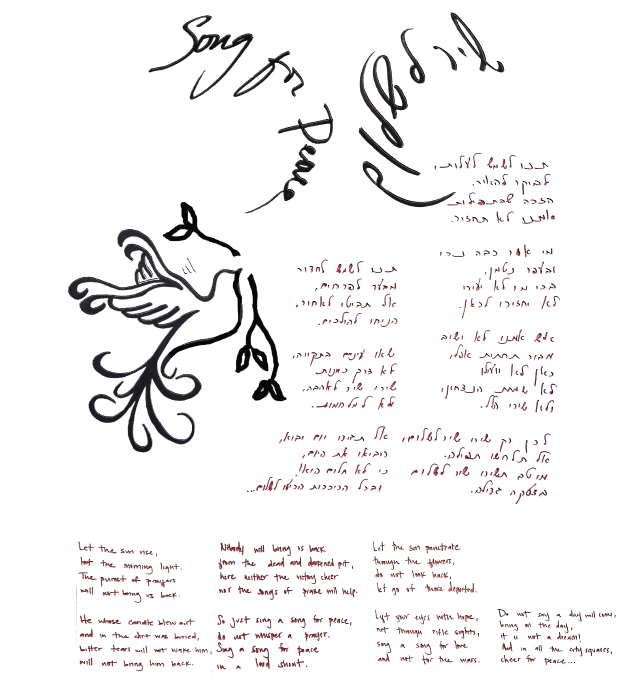Nineteen years later, the Jewish people still mourn the tragic loss of a national and international hero.
In the month of November, we remember the life of Yitzhak Rabin – Nobel Peace Prize winner and iconic figure of hope and agreement in the Middle East. Had Rabin been with us today, would we still be shedding blood and tears over the same conflict?
The first native-born prime minister of Israel, Rabin began his service to the country prior to its establishment. He joined the Haganah (one of the Jewish militias) in 1940 and fought against the British Army. After years of excellent service, his military career reached its height when he became the Chief of Staff during the Six Day War in 1967. Upon his retirement in 1968, he became the Israeli Ambassador to the Unites States.
Rabin then returned to Israel in 1973 and became involved in the Labor Party. Upon Golda Meir’s resignation in 1974, he took leadership of the party and was instated as the country’s fifth prime minister, up until 1977. One of his most formidable challenges during this period was authorizing the 1976 Entebbe Raid, during which the Israeli Sayeret Matkal commandos freed 100 Jewish and Israeli hostages in Uganda following the hi-jacking of a plane by terrorists. He served as Israel’s Defense Minister in the years 1984 to 1990, and responded forcefully to the Arab uprisings in the occupied territories of the West Bank.
In 1992, he regained leadership of the Labor Party and was reinstated as Prime Minister once again, playing a major role in the negotiations for peace between Israel and its neighbors. His government participated in secret negotiations with the Palestinian Liberation Organization, then headed by Yasser Arafat. They came to peace agreements, entitling both parties with recognition by the other, endorsing the transition to a self-rule of the occupied territories, and the instatement of the PLO as the official partner to Israel for future negotiations. The agreements, known as the Oslo Accords, set forward a five-year plan, during which the first steps toward peace would be accomplished. They were signed in Washington, D.C. in 1993. Together with Shimon Peres and Arafat, Rabin was the recipient of the Noble Peace Prize in 1994.
On Nov. 4, 1995, thousands congregated to support Rabin and hear him speak at a massive peace rally in Tel Aviv-Yafo. That night, in his most memorable and very last speech, he powerfully stated, “Violence erodes the basis of Israeli democracy. We must condemn, denounce and isolate it – violence is not the way of the State of Israel… Although the road to peace for Israel with its Arab neighbors is fraught with difficulties and pains, it is preferable to that of war.” He set his intentions for the government to “exhaust every opening, every possibility, to promote and achieve a comprehensive peace.”
He asked that this historic night sends a clear message to the Israeli public, the Jewish world, the Arab world, and the outside world that “The people of Israel want peace. We support peace.”
Shortly thereafter, the rally’s participants joined together to sing “Shir La’Shalom,” or “Song for Peace.” Just moments later, on his way out of the rally, Rabin was tragically shot dead. His killer was Yigal Amir, an extremist right-wing Israeli who believed that the prime minister had “betrayed” the country by choosing to trade land for peace. In Rabin’s jacket pocket, the lyrics to “Shir La’Shalom” were found, stained in his blood.
Unfortunately, in the years following Rabin’s assassination, the Accords dissolved. Of course, many factors and figures contributed to this failure, but the question remains – had Rabin been with us today, would we continue to shed blood and tears over the same conflict?
Now more than ever, the Jewish community must remember Rabin’s strong conviction in peace. We must educate peace. We must learn to see the Palestinians and the Arab world as our peace partners, not our enemies.
Remembering Rabin is remembering a time when Israel and Palestine were mentioned together in light of friendship. Remembering Rabin is remembering that no amount of hate is irreparable, and no disagreement unsolvable. Just like it was done then, it could be done now.

